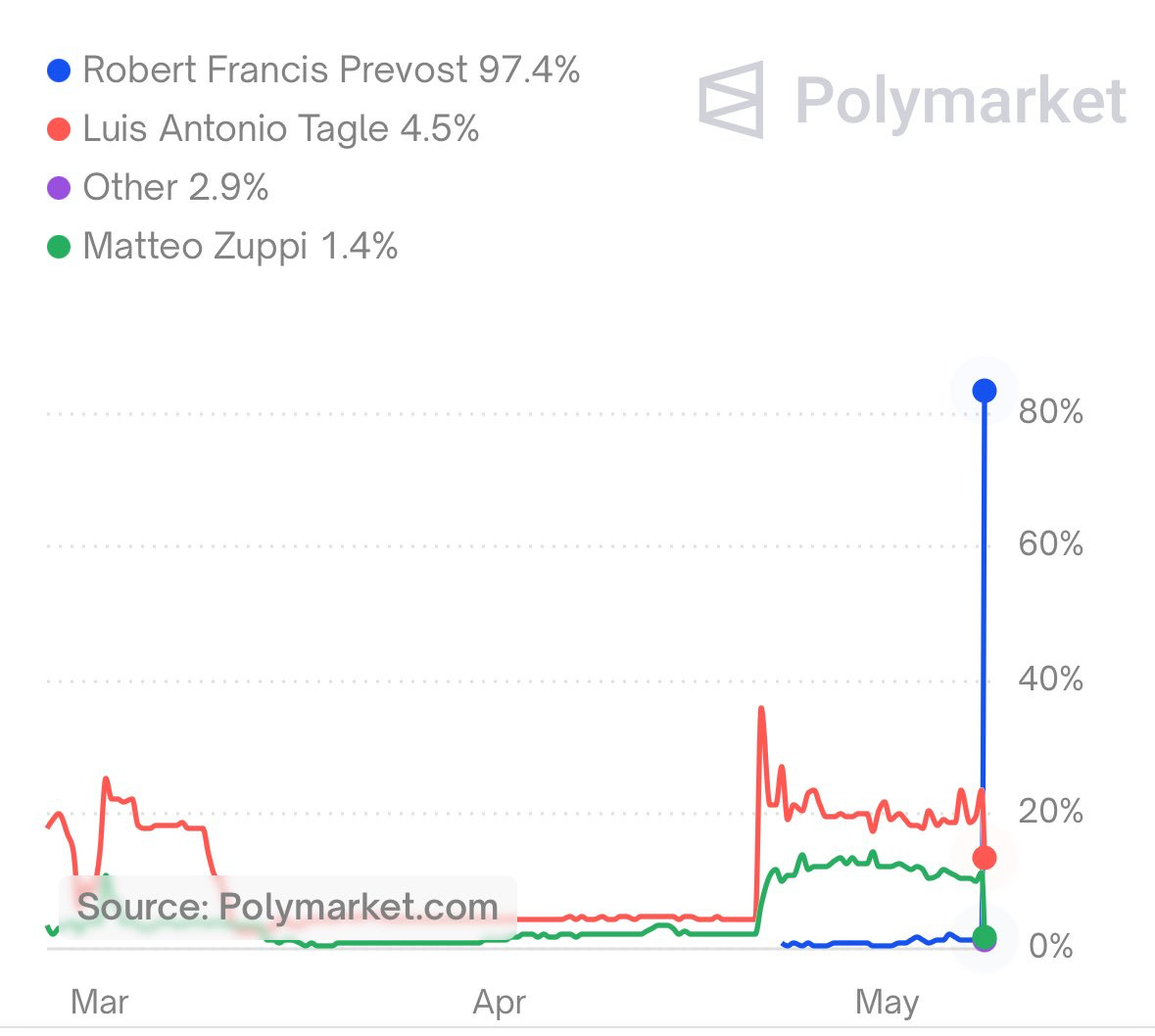Prediction markets didn’t get the Pope right, but this did
New Governor ratings, Trump approval on 52 issues, what makes a good Democrat or Republican, AI replacing new grads — and McKinsey consultants
⛪ Conclave 2025
The prediction markets did not predict the new Pope:
But a group of Italian scholars was able to call the surprise election of Cardinal Robert Prevost using network analysis to examine the cardinals’ relationships to each other to gauge who was most influential. Here’s how it worked:
The research team reconstructed a multilevel model of the ’Vatican network” using three main sources:
Official co-memberships (Roman curia dicasteries, commissions, councils, academies): these data reveal who works with whom and in what institutional contexts.
Lines of episcopal consecration: each cardinal was ordained by others, and these “spiritual genealogies” build strong bonds of loyalty and recognition.
Informal relationships: mapped through authoritative journalistic sources, these include ideological affinities, mentoring relationships, and membership in patronage networks.
By superimposing these levels, the group produced the first true systemic map of the College of Cardinals.
Here was …




